The Truth About the Telepathy Tapes
Guest columnist J.M. Wise shows how the long discredited method of facilitated communication is now being presented by an award-winning documentarian as evidence for telepathy
In this edition of Skeptic we return to the subject of facilitated communication, a long-discredited pseudoscientific technique alleged to unlock the minds of otherwise severely cognitively impaired children and young adults through a technique resembling the Ouija Board. (See Skeptic’s coverage of FC here and here.) Guest columnist J.M. Wise shows what is really going on and why the phenomenon has emerged once again.
J. M. Wise is a biology senior at Texas A&M University, where she is the news editor for The Battalion. She covers breaking scientific research, rural healthcare, and misinformation within the biomedical science community. Having lived and worked in rural south Texas all her life, she has dedicated her time to advocating for improvements in rural healthcare via journalism. She will begin medical school in the fall of 2025. Contact: jmwiseofficial@gmail.com
In a recent popular ten-part podcast series called The Telepathy Tapes, Ky Dickens, a respected and award-winning documentarian, claims that nonverbal autistic children are telepathic, communicating psychically with other children and their facilitators. Further, Dickens asserts that this discovery promises to overturn scientific materialism. At the time of this writing, The Telepathy Tapes was the top podcast in the United States, with even Joe Rogan discussing the series on his December 26, 2024 episode, reaching over 11 million listeners.
Dickens’ podcast has been used to bolster dozens of ideas outside of mainstream science, from telepathy to facilitated communication, and even the idea that reality is a mental construct. Despite the explosion of the podcast’s popularity, scientists are warning that the entire premise behind it not only has no scientific basis but may be exploiting vulnerable children.
One of the first articles critiquing The Telepathy Tapes came from the Office for Science and Society of McGill University, whose mission is to separate sense from nonsense. The author, Jonathan Jarry, is a science communicator who has over a decade of experience analyzing fringe and outstanding claims. “It struck me as a really interesting case study of a journalist who seemed unprepared to tackle a topic that had been very well covered before and sort of delved headfirst into it, believing almost all of it,” Jarry told me in an interview. “We’ve seen all of this before.”
A main claim in The Telepathy Tapes is that “facilitated communication” (FC) a long-discredited form of communicating with nonverbal individuals, allows parents to “unlock” their children’s communication skills. Using FC—which often involves a facilitator holding a child’s hand above a keyboard and then recording what gets typed—these otherwise severely cognitively impaired children have graduated from high school and college, leading parents and FC proponents to claim that the children are cognitively normal but only have communication limitations.
Illustration by Pat Linse for Skeptic.
But experimenters have definitively demonstrated in blinded tests, in which child and facilitator see the same or different objects, that it is the facilitator doing the communicating, not the children. The Telepathy Tapes takes FC to the next level in which children purport to tell their caretakers that they are telepathic and can communicate with other nonverbal children via telepathy.
Not only are techniques like facilitated communication described as ‘therapeutic quackery’ by communication specialists, but they have led to lawsuits, and studies have alleged it may even violate a child’s right to an abilities-appropriate education. (In one famous case that is the subject of a Netflix documentary, Tell Them You Love Me, the caretaker/facilitator engaged in inappropriate and illegal sexual activity with a severely disabled minor she had fallen in love with and as a result went to prison.) Children have a right to an education that uses peer reviewed research under the IDEA Act, and over the past quarter century FC has been disproven in at least 19 studies. “You are not looking at the claims being made through a scientific lens, and you really should,” Jarry explained. “A lot of these things have been debunked, and we know they’re not true. It doesn’t matter if someone believes in them.”
Jim Underdown is the executive director of the Center for Inquiry (CFI) West and the founder of their investigations group (CFIIG) that offers a half-million dollar prize to anyone who can prove paranormal activity. Over the course of 25 years, Underdown says he has not yet seen evidence that would support any of Dickens’ claims. “We get people who apply for our money all the time and want to be tested and think that they have telepathic ability,” he recounted, adding that “they’re making mistakes about why they think they have this ability and there are lots of different reasons for that.”
CFI West publishes the results of their tests on their website, with subjects often under a pseudonym to protect their identity. Underdown said despite no participants attempting to trick CFI, they insist on rigorous controls for their tests, such as removing any potential transmitters and separating any subjects to prevent any information from leaking from a test administrator to a subject. “I would almost want to say 100% … of the people who believe they have telepathy are mentally ill on some level,” Underdown continued. “And I hasten to add that I am not a psychologist or a psychiatrist, but I have four psychologists and one psychiatrist on our team and they are all in complete agreement.”
One of the reasons The Telepathy Tapes are soaring in popularity is due to their inclusion of educated professionals in the medical and scientific fields who believe in parapsychology. The main expert on the podcast is Dr. Diane Hennacy Powell, a former Harvard psychiatrist with a medical education from Johns Hopkins. “It’s not that I’m asking anybody to believe that telepathy has been proven,” Powell said. “It’s that I want people to realize it's worthy of study. These stories are just too compelling, they’re coming from people who are very credible.”
Powell first became interested in parapsychology after working as a psychiatrist on Harvard Medical School’s consultation service. After encountering a patient who claimed to be psychic and predicted her future, Powell wanted to connect the study of savant syndrome with parapsychology. According to Powell, after she published a book on telepathy, the Oregon medical board retaliated by pulling her license. Powell claimed that she had documents proving the retaliation but was unable to produce them.
For science communicators like Jarry, claims of retaliation such as Powell’s set off an immediate alarm. “When you see somebody who is really at the fringe of their community who has been ostracized, who claims to have been discriminated against because of their beliefs, and those beliefs are based on extraordinary claims that are outside of what is scientifically supported, you have to be very, very, very skeptical.”
When Underdown first listened to The Telepathy Tapes he was struck by the realization that the entire premise of the podcast—telepathy being possible—could be explained by facilitated communication’s effect resembling the Ouija Board in which participants are unconsciously moving the planchet but believing the premise of the game, namely that it is spirits or paranormal powers moving it. “That was one of the first things that came up in my mind, who is actually giving the answers? Who is actually privy to the answers?”
Illustration by Pat Linse for Skeptic.
Studies have shown that facilitated communication clients are not the authors of the messages that they type out. A simple explanation for the apparent telepathy goes like this: the communication facilitator has a message in mind, one that the child cannot possibly know. Through unconsciously manipulating the child’s arm to point at a letterboard, the facilitator spells out their own message. In this way, it looks like the child is telepathically reading the facilitator’s mind. But in reality, the child has simply been prompted to respond to subtle cues and touches to spell out someone else’s thoughts. “You approach this from the point of view that personal experience is very convincing,” Jarry said. “So whatever skepticism you have in the face of extraordinary claims can suddenly vanish when you experience something weird that you can’t immediately explain.”
Illustration by Pat Linse for Skeptic.
Tests that Dickens and Powell have conducted to show evidence for telepathy are available on the podcast website for $9.99. Jarry, who watched the footage, saw parents manipulating children’s arms and faces, along with moving letterboards to spell out words. “It really doesn’t look like cueing is going on, because they’re so rapid … the board is only moving in response to the impact of the finger,” Powell said. “I mean, some of these kids have more than one facilitator and more than one person they’re telepathic with. It just needs to be a different person holding the board than the person who knows the answer.”
Powell’s telepathy tests follow a common format. They usually involve a task that can be easily described with a few words, like pointing at a number on a letterboard that matches a card held up behind a child’s head. In one video, a blindfolded child sorts popsicle sticks by color while her mother guides her head. In another, a child types out the answer to a math problem that his mother created on her phone. All these are easily cued and fail under replication.
Jarry has seen journalists take similar approaches to Dickens’ when covering alternative medicine and other pseudoscientific topics. While a human-interest story may be more engaging to a wider audience, Jarry says these stories need to be seen as scientific in nature. “Those big studies that get mentioned in those podcasts as having established evidence for telepathy, they were debunked by replication. We know this, this is public knowledge. But it doesn't get as much coverage because it's not as sexy when you get a negative result.”
Throughout The Telepathy Tapes, studies such as Daryl Bem’s precognition work are referenced as proof of telepathy. However, these studies have failed to provide any evidence when replicated under tight scrutiny. In the face of insurmountable evidence, Dickens, Powell and the parents in the podcast continue to believe. “These parents and the kids are in a tough position,” Underdown explained. “It’s a difficult thing to live and care for someone who has serious issues like that. There’s this desire for ‘normalcy’ and that they want their kids to be special in some way. And it’s not just in these kids in the podcast, but everyone who claims to have one of these paranormal abilities believes themself in one form or another to be special.”
In studies from the American Speech-Language Hearing Association, parents have expressed their desire to communicate with their children, despite the difficulties presented by developmental delays. For Underdown and Jarry, this desire may lead to belief in parapsychology. “I think that you can be compassionate towards people who have these unscientific beliefs who may be deluded, who believe things that are wrong,” Jarry concluded. “You can have compassion for them while at the same time not supporting their beliefs and portraying them as real to a wide audience.”
Without any opposing viewpoints presented on the podcast, Jarry and Underdown said that others may begin to believe in facilitated communication and deprive their children of opportunities for them to communicate. “I mean, bring a physicist into this,” Underdown said. “Or a neurobiologist into this. Is there any physical mechanism for a thought wave, which is a chemical-electrical wave in your brain to send that little event in your mind, into another mind, which then has a receiver to turn that into real usable information? There is none.”
Powell remains optimistic about the future of her studies in parapsychology. As for the podcast, Dickens has a second season planned and hopes to turn the footage into a documentary. “For me, I’m truly doing this because I’m a scientist,” Powell said. “I'm willing to look at it and kind of walk that dance, where I’m open minded but I'm not a fool. I'm not someone who is naive to the different controversies.”
Skeptics and scientists think otherwise.




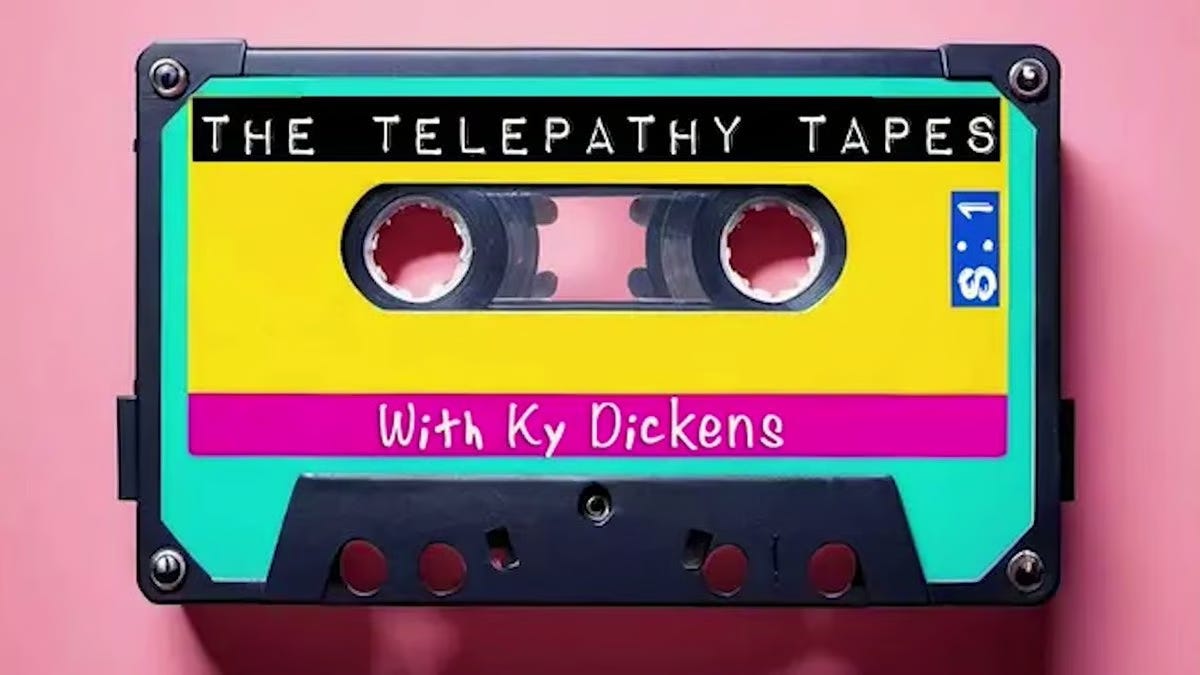
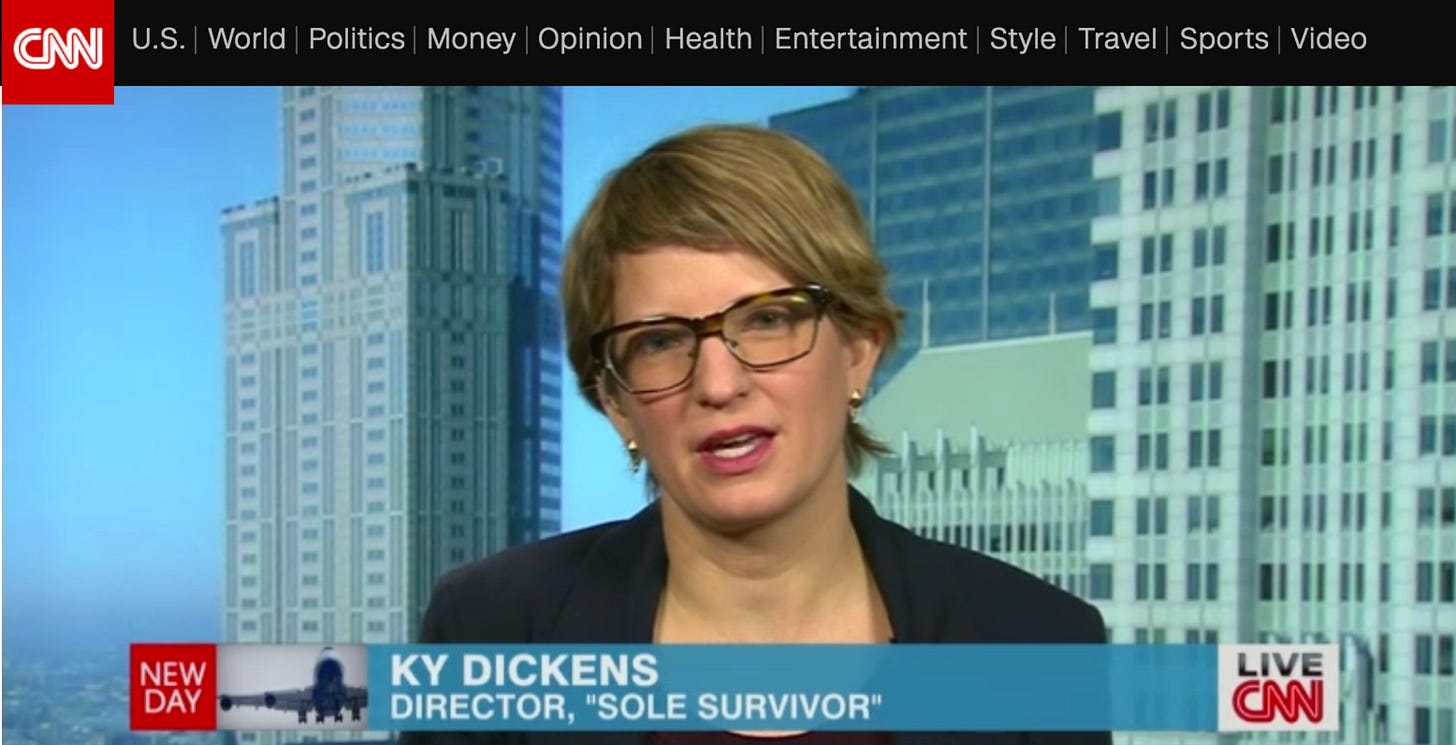
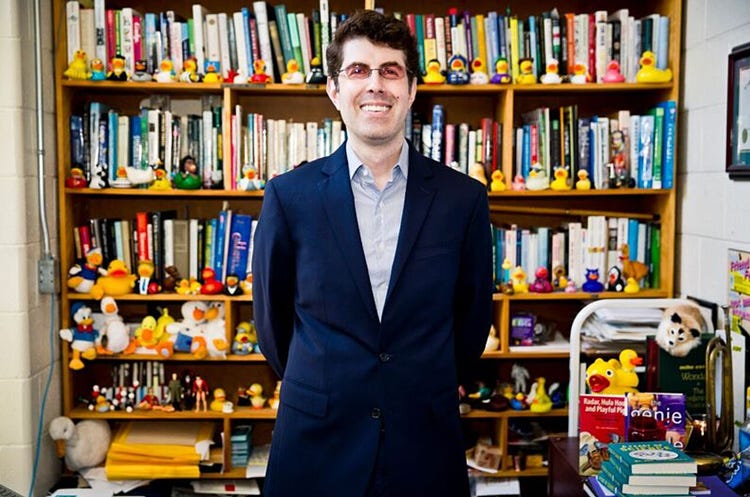
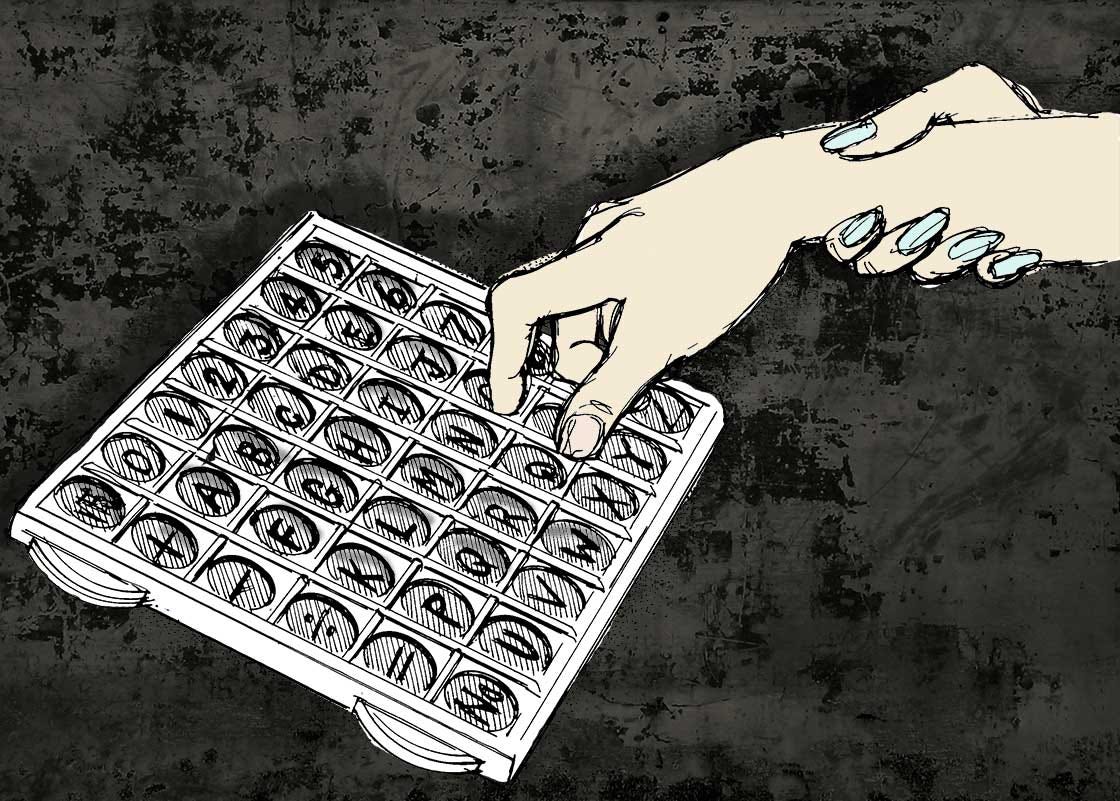
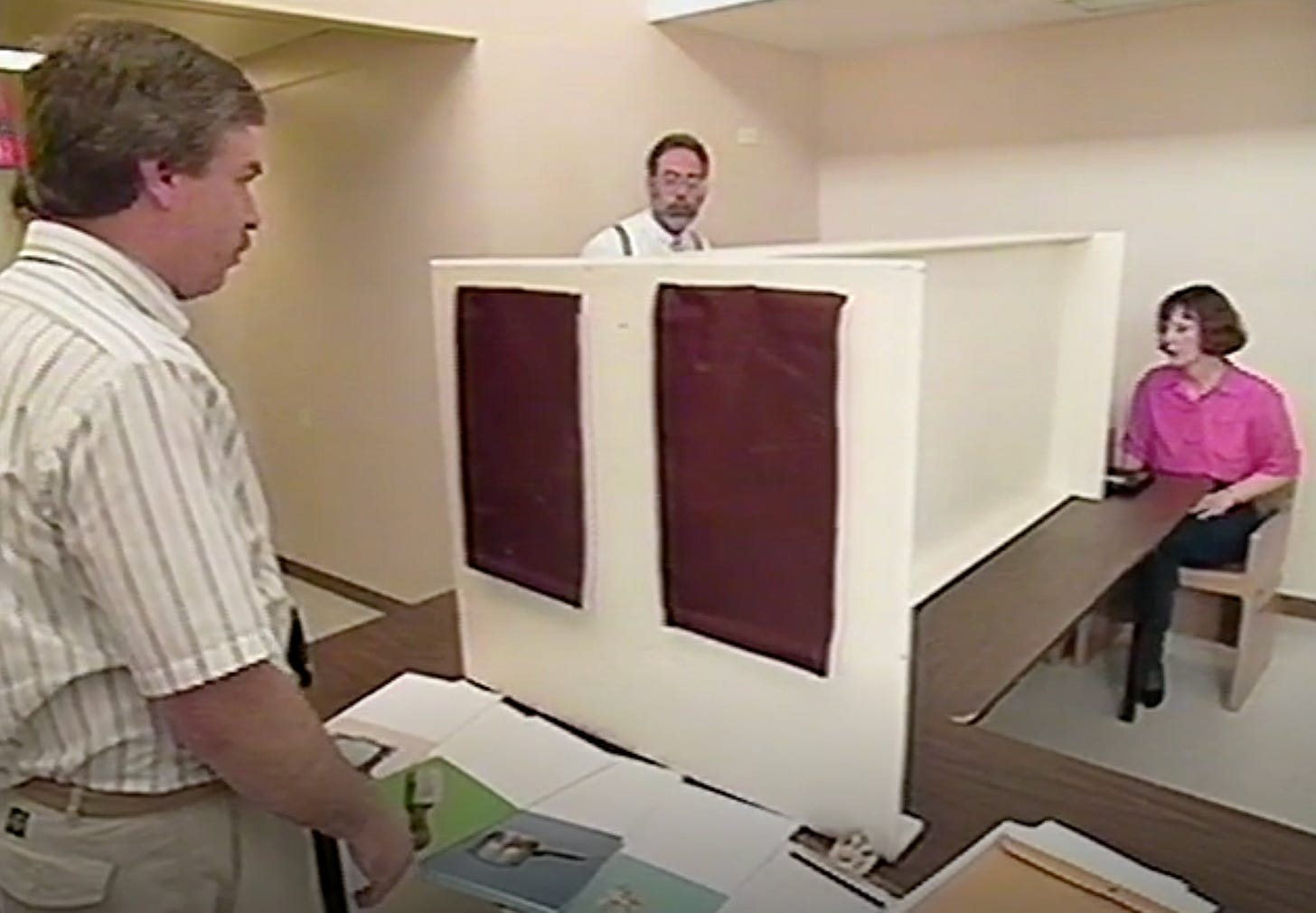
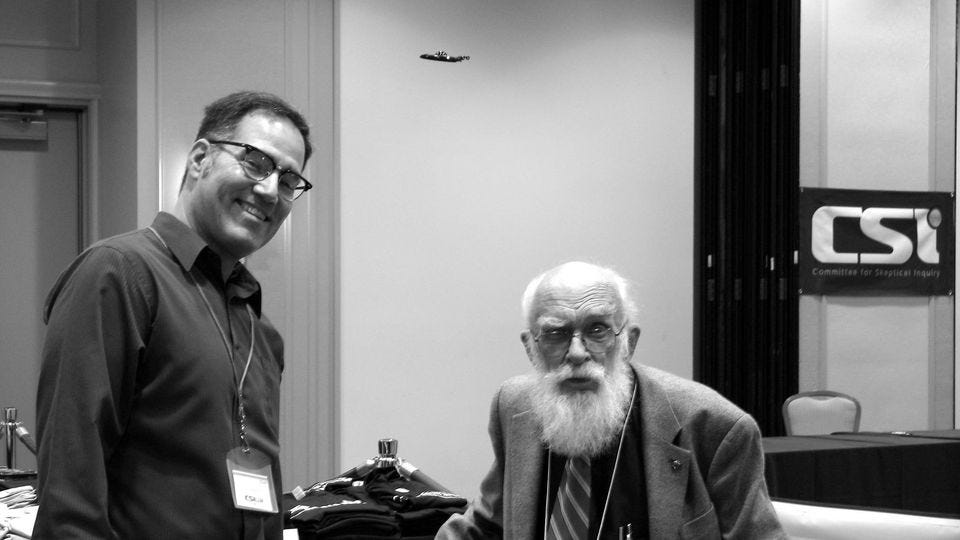
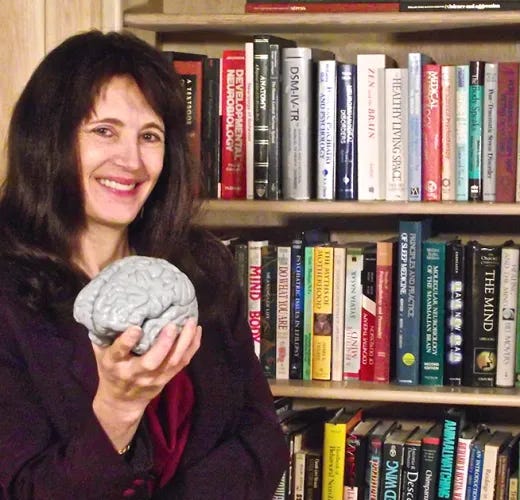
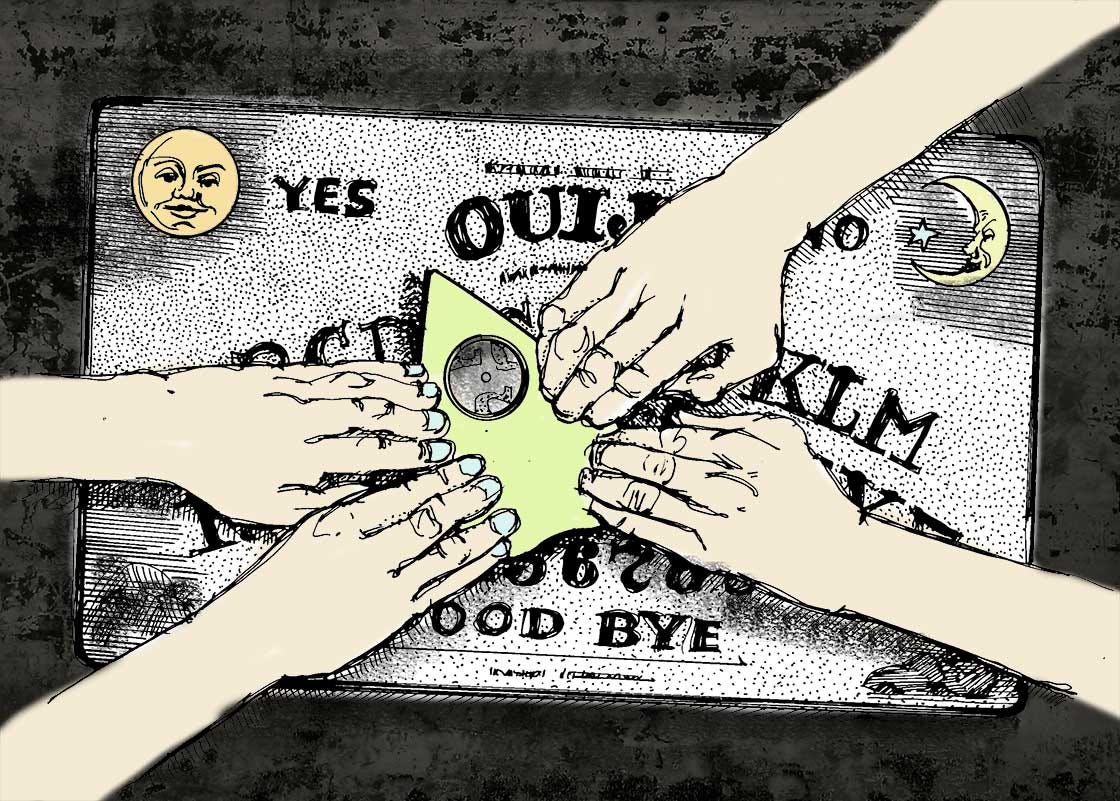
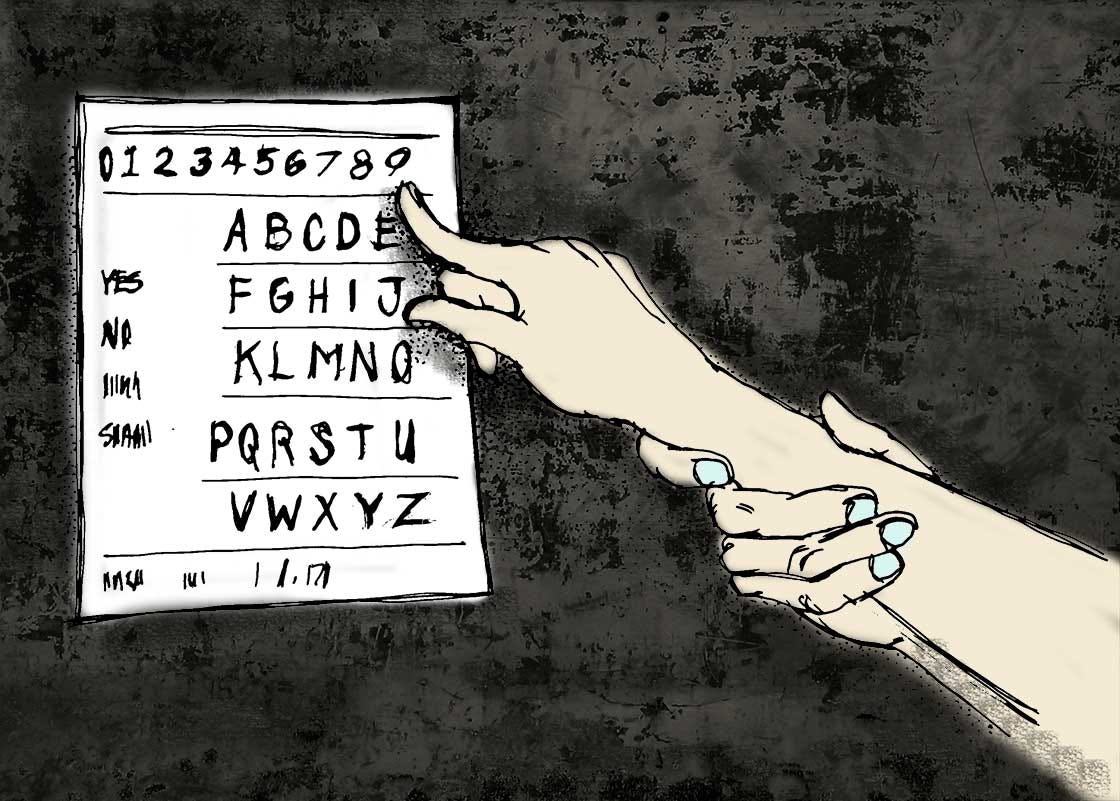
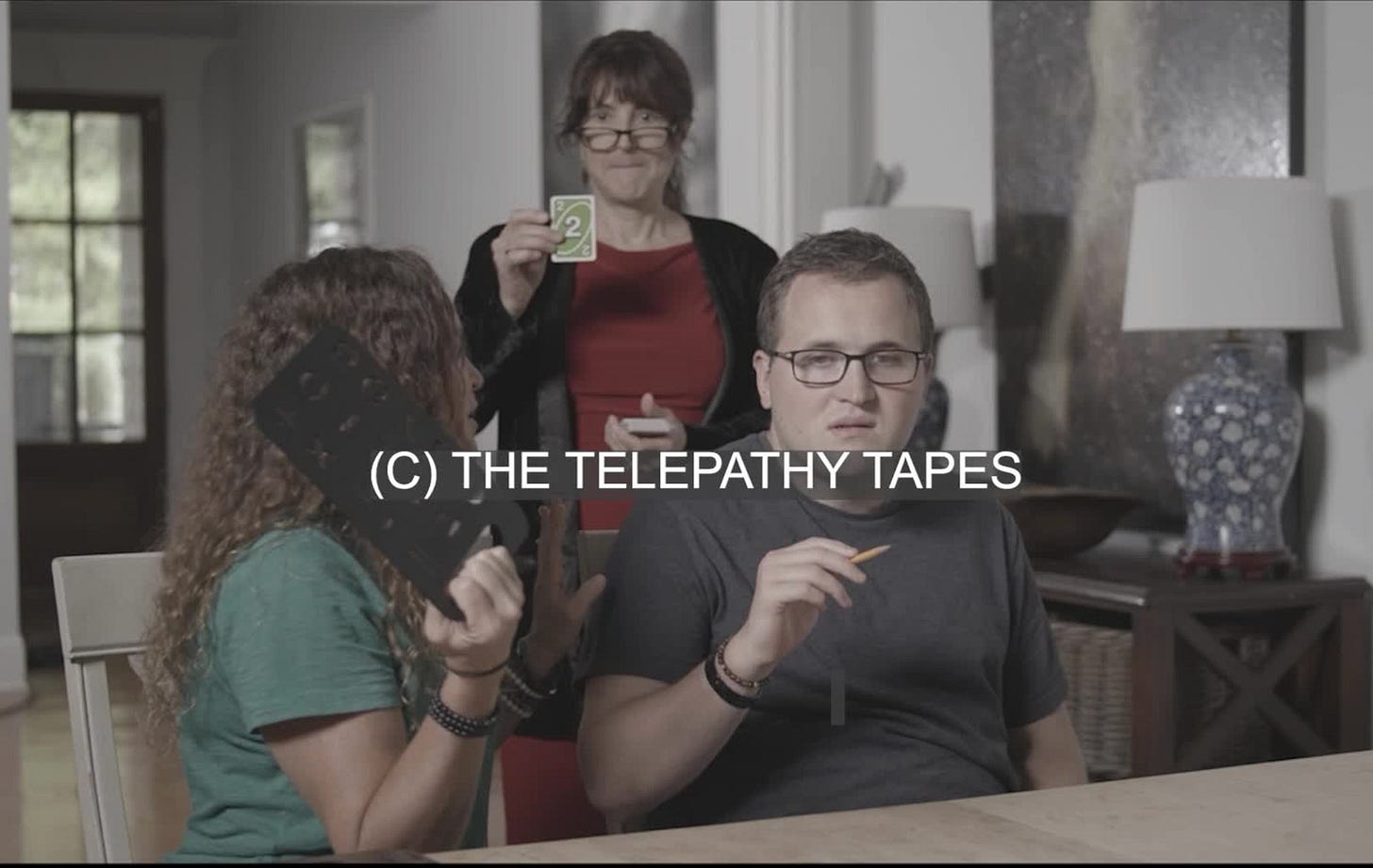
My 30 year old son is autistic, so we have been involved in this world for decades. I know many families who have pursued facilitated communication, or its more contemporary forms, Spelling to Communicate or Rapid Prompting Method. My heart breaks for these families as I know they enter this world trying to find a way to communicate with their child or to hear him or her say "I love you." But I've never figured out what to do or say to these parents. These are desperate parents who believe they are finally communicating with their child. I can't be the one that tells them this method has been debunked, that the messages they receive from their child aren't real. They won't believe me, and it will destroy our relationship. So I listen and don't comment.
But it is also heartbreaking that FC, which has been debunked repeatedly, doesn't die and continues to prey on desperate families.
I was hoping this podcast would make it on y'all's radar. Thank you for addressing it. Much empathy to these parents.